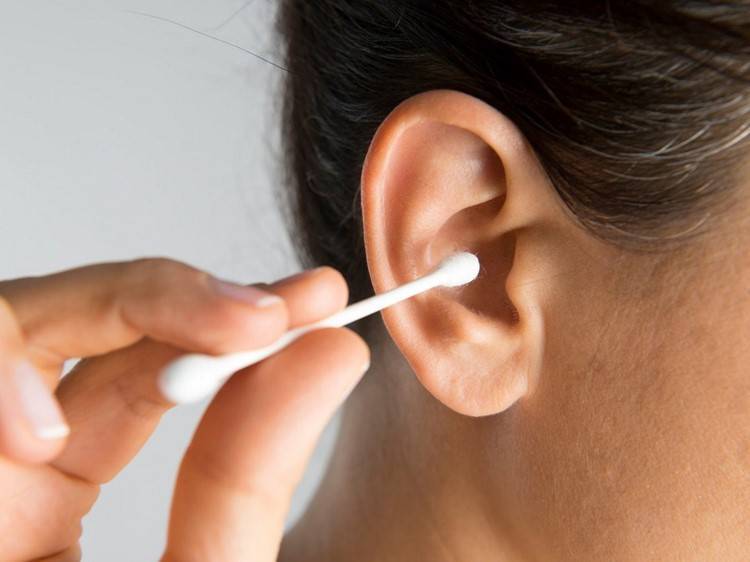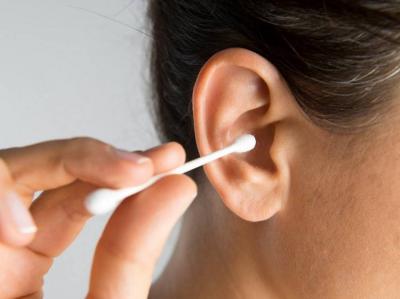Earwax usually falls out on its own, but the harder type can be bothersome. While cotton swabs are a common solution, their use may be harmful to your health, warned Dr. Emeka, the brand ambassador for the Freeletics fitness and AI-based lifestyle app. There are various daily practices that seem harmless but can actually hurt an individual. One of the hidden health risks that many people are unaware of when cleaning their ears with cotton swabs was explained by Emeka to "Express."
"Many of us use cotton swabs in our inner ear when we feel a buildup of earwax," Emeka explained. "Symptoms of hard earwax impact might include ear pain, a feeling of clogged ears, hearing ringing in your ears, or even dizziness, so it's understandable that some people like to clean their ears daily and may use cotton swabs." However, this habit can contribute to pushing the wax deeper, potentially injuring or perforating the eardrum, and even causing infections.
The UK's National Health Service advises, "If a problem occurs, put two to three drops of medical-grade olive oil or almond oil in your ear twice a day for a few days." It is recommended to use a dropper while lying on one side for a few minutes to allow the oil to work its way through the ear canal. "Over a period of about two weeks, clumps of earwax should fall out of your ear, especially at night when you are lying down."
How does oil remove earwax? Harvard Health explains that "oil-based products work to soften earwax." Studies have not shown that one type is better than another.
What causes earwax buildup? Mayo Clinic clarifies, "The glands in the skin lining the outer half of the ear canals secrete the wax in your ears. The wax and tiny hairs in these passages trap dust and other foreign particles that can damage deeper structures, such as the eardrum."
Other causes of ear problems: If you are experiencing hearing loss, it may be due to other conditions that require a more specialized solution. According to Bupa, you might need surgery if your hearing loss results from certain conditions, including:
- Enlarged polyps - which usually stop growing by the age of five. But if they continue to grow, they may cause hearing loss by blocking the tube that connects your middle ear to the back of your throat.
- Growths in the outer ear canal can block your ear canal and cause hearing loss.
- An acoustic neuroma can grow on the nerve that sends messages regarding hearing and balance to your brain, potentially causing hearing loss, dizziness, or vertigo. You may need surgery to remove the neuroma.
- Cholesteatoma - an abnormal skin growth that can form in the middle ear. It is treated surgically to remove it.
- Otosclerosis occurs when additional bone grows on one of the three tiny bones (ossicles) in the middle ear. This prevents your ossicles from amplifying sound and transmitting it to your inner ear.
- Perilymph fistula - an abnormal opening between the inner ear and middle ear. Fluid leaks into the middle ear, causing hearing loss, tinnitus, and dizziness.
Studies indicate that hearing loss can lead to changes in the brain that increase the risk of dementia and Alzheimer's disease.




